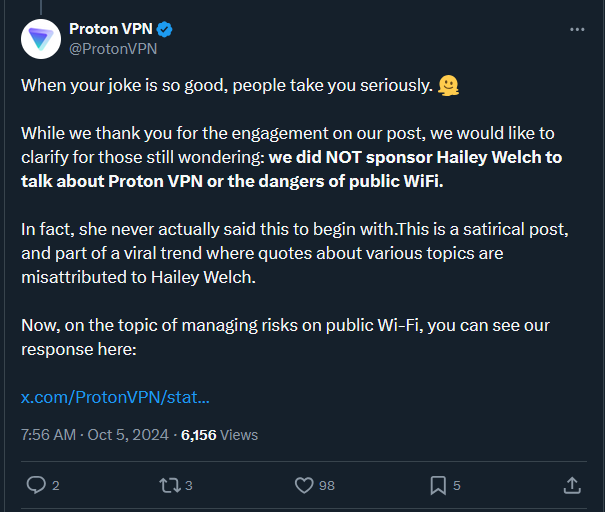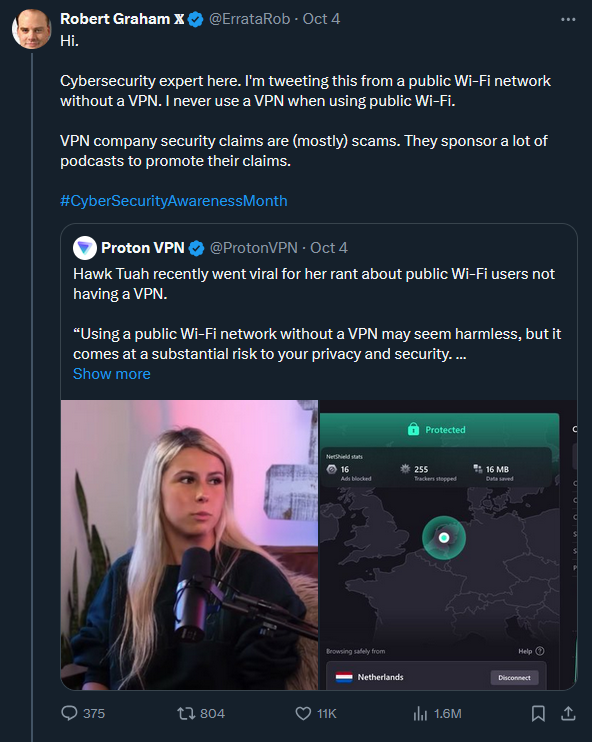this post was submitted on 06 Oct 2024
735 points (90.8% liked)
Technology
63096 readers
3612 users here now
This is a most excellent place for technology news and articles.
Our Rules
- Follow the lemmy.world rules.
- Only tech related content.
- Be excellent to each other!
- Mod approved content bots can post up to 10 articles per day.
- Threads asking for personal tech support may be deleted.
- Politics threads may be removed.
- No memes allowed as posts, OK to post as comments.
- Only approved bots from the list below, to ask if your bot can be added please contact us.
- Check for duplicates before posting, duplicates may be removed
- Accounts 7 days and younger will have their posts automatically removed.
Approved Bots
founded 2 years ago
MODERATORS
you are viewing a single comment's thread
view the rest of the comments
view the rest of the comments


Yes, to a degree. A VPN protects you from an attacker on the same WiFi network as you and that's about it.
Most assaults on your privacy don't happen like that, and for the most part the attacks that do happen like that are stopped by the website using https and proper modern security.
The benefit of the VPN is that it puts some of that protection under your control, but only as far as your VPN provider.
A VPN is about as much protection from most cyber attacks as a gun is.
They're not a security tool, they're a networking tool. They let you do some network stuff securely, and done correctly they can protect from some things, but the point of them is "this looks like a small, simple LAN, but it's not".
It's much easier to package and sell network tools than security tools, and they're much more accepted by users, since security tools have a tendency to say "no" a lot, particularly when you might be doing something dumb,and users hate being told no, particularly when they're doing something dumb.
Exactly. VPN companies vastly oversell what their services offer.
That said, I set up my own VPN, we use one at work, and I'm considering paying for a commercial VPN service. My personal VPN gets around my ISP's CGNAT so I can host public services within my LAN, my work VPN gives us remote access to protected services, and the commercial VPN I'm considering paying for is to get around my state's laws (they are requiring ID for porn and social media, and I think that's a privacy overreach).
VPNs have their place, but they're hardly "essential" for most people, especially if your concern is security.